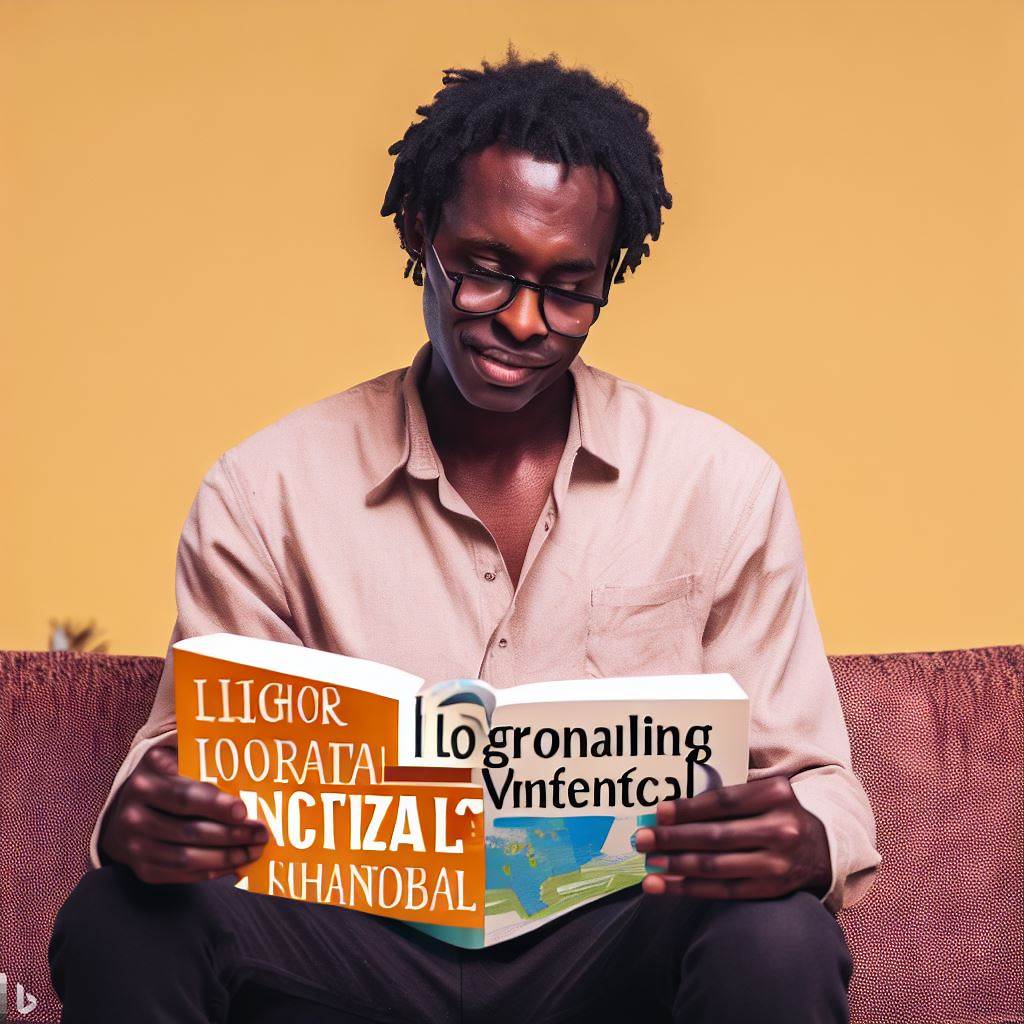Local Vs International Publishing: A Nigerian Perspective
Last Updated on August 24, 2023
Introduction
In this post, we will explore the topic of local versus international publishing from a Nigerian perspective.
Nigeria’s publishing industry will serve as the basis for our discussion on the advantages and disadvantages of both approaches.
In this blog post, we will discuss the importance of promoting local authors and stories, highlight the benefits of preserving and promoting Nigerian literary traditions, explore how local publishing can contribute to the cultural and economic development of Nigeria, and mention the challenges faced by local publishers.
Local Publishing
Importance of Promoting Local Authors and Stories
- Encouraging local authors helps to showcase the unique perspectives and experiences of Nigerians.
- Promoting local stories provides a platform for indigenous narratives, fostering cultural pride.
- Supporting local authors can lead to the discovery of untapped literary talent in Nigeria.
- By promoting local authors, we can challenge the dominance of international literature.
Benefits of Preserving and Promoting Nigerian Literary Traditions
- Preserving Nigerian literary traditions allows for the passing down of cultural heritage to future generations.
- Promoting Nigerian literary traditions helps to preserve indigenous languages and dialects.
- Highlighting Nigerian literary traditions can attract international attention and curiosity.
- Nigerian literary traditions contribute to a rich and diverse global literary landscape.
Contribution of Local Publishing to Cultural and Economic Development
- Local publishing supports the growth of a vibrant and dynamic Nigerian literary industry.
- It promotes the production and consumption of local literary content, boosting cultural appreciation.
- Local publishing creates employment opportunities within the publishing sector.
- It can attract investment in the development of Nigeria’s publishing infrastructure.
- Local publishing contributes to the preservation and promotion of Nigerian cultural identity.
Challenges Faced by Local Publishers
- Local publishers often struggle with limited financial resources for printing and distribution.
- The lack of a robust distribution network makes it challenging to reach a wider audience.
- Limited access to technology and digital publishing platforms hinders competitiveness.
- Local publishers may face stiff competition from international publishing houses.
Promoting local authors and stories is crucial for showcasing Nigerian perspectives, preserving and promoting literary traditions, and contributing to the cultural and economic development of Nigeria.
Despite the challenges faced by local publishers, efforts should be made to support and uplift the local publishing industry to ensure the continued growth and recognition of Nigerian literature.
Read: Spotlight on Nigeria’s Tech Editors: A Closer Look
International Publishing
Advantages of International Publishing for Nigerian Authors
- Nigerian authors gain a wider audience and increased exposure on a global scale.
- It provides an opportunity for Nigerian authors to be recognized and appreciated internationally.
- International publishing offers better marketing and distribution networks, reaching a larger number of readers.
- By collaborating with international publishers, Nigerian authors can access superior editing and publishing services.
- International publishers have established relationships with renowned literary agents, facilitating book deals and negotiations.
- Nigerian authors have the chance to connect with readers from different cultural backgrounds, inspiring diverse perspectives.
- International publishing grants Nigerian authors the opportunity to explore and tackle new subject matter.
- It allows Nigerian authors to experiment with different writing styles and genres, broadening their creative capabilities.
- By being published internationally, Nigerian authors can expand their influence and become literary ambassadors for their country.
- International publishers often provide substantial financial advances, which can support Nigerian authors financially.
Potential for Increased Exposure and Recognition on a Global Scale
- Nigerian authors gain visibility in the global literary scene, leading to increased recognition of their work.
- An international readership allows Nigerian authors to make a lasting impact on a broader audience.
- Recognition on a global scale can lead to invitations for international book tours, conferences, and literary events.
- Nigerian authors can participate in prestigious literary prizes and awards, expanding their literary careers.
- Increased exposure enables Nigerian authors to build a global fan base, resulting in higher book sales.
- The global recognition and success of Nigerian authors contribute to the overall growth and development of Nigerian literature.
- International exposure encourages Nigerian authors to aim for higher literary achievements.
- Recognition from international publishers can open doors to future collaborations and opportunities for Nigerian authors.
- The cultural diversity gained through international recognition enriches Nigerian literature, fostering a more inclusive literary landscape.
- With global recognition, the stories and experiences of Nigerian authors can shape international literary trends.
Access to Better Marketing and Distribution Networks through International Publishers
- International publishers possess extensive marketing experience and resources, promoting Nigerian authors on a global scale.
- International publishing offers Nigerian authors the opportunity to reach readers in different languages and countries.
- Through international publishers, Nigerian authors can benefit from professional book cover designs and attractive packaging.
- International publishers have established distribution networks, ensuring Nigerian authors’ books reach various markets worldwide.
- Nigerian authors gain access to international bookstores, online platforms, and libraries, expanding their readership base.
- Availability in international bookstores increases the discoverability and accessibility of Nigerian authors’ works.
- International publishers often invest in book marketing campaigns, raising visibility for Nigerian authors and their books.
- International publishers can secure translations of Nigerian authors’ works, allowing them to reach even more readers globally.
- With the backing of international publishers, Nigerian authors can engage in literary events and festivals around the world.
- The global marketing and distribution networks provided by international publishers enhance the financial success of Nigerian authors.
Challenges Faced by Nigerian Authors Targeting an International Audience
- Nigerian authors may need to adapt their writing style to cater to the preferences of international readers.
- Exploring unfamiliar subject matter that resonates with an international audience may pose a challenge for Nigerian authors.
- Language differences can present a barrier for Nigerian authors when targeting non-English speaking markets.
- Understanding cultural nuances and sensitivities is crucial to avoid misinterpretation or offense in international audiences.
- Nigerian authors may face difficulty finding international publishers willing to take a chance on lesser-known voices.
- Establishing contact and building relationships with international publishers can be challenging for Nigerian authors.
- International publishing contracts may come with complex legal and contractual terms that require professional guidance.
- The cost of translation services for Nigerian authors seeking to target non-English speaking markets can be prohibitive.
- Competition from established international authors can make it challenging for Nigerian authors to gain recognition.
- Nigerian authors may need to overcome stereotypes or preconceived notions about African literature to attract international readers.
Read: The Impact of Digital Media on Editing in Nigeria

Case Studies
- Chimamanda Ngozi Adichie: One of the most successful Nigerian authors, Adichie’s works have gained immense popularity through local publishing.
- Chinua Achebe: A renowned Nigerian author, Achebe’s novels have significantly contributed to the growth and recognition of Nigerian literature.
- Wole Soyinka: Nobel laureate Soyinka’s literary works have not only achieved international success but have also influenced the Nigerian publishing scene.
Contributions of Local Publishing
Successful Nigerian authors who have benefited from local publishing have made significant contributions to the growth and recognition of Nigerian literature.
Their works have captured the essence of Nigerian culture, history, and societal issues.
Chimamanda Ngozi Adichie’s novels, such as “Purple Hibiscus” and “Half of a Yellow Sun,” have garnered critical acclaim and international recognition.
Through local publishing, Adichie has been able to share Nigerian stories with a global audience, highlighting the rich heritage and experiences of Nigerians.
Chinua Achebe, often referred to as the “father of modern African literature,” played a pivotal role in shaping the Nigerian literary scene.
His masterpiece, “Things Fall Apart,” is a classic example of how local publishing can propel a writer to international fame.
Achebe’s storytelling prowess and his ability to depict the complexities of Nigerian society have inspired countless writers and readers worldwide.
Wole Soyinka’s international success through international publishing has also had a significant impact on the Nigerian publishing scene.
His plays, such as “Death and the King’s Horseman,” have garnered critical acclaim globally, bringing attention to Nigerian theater and literature.
Soyinka’s achievements have paved the way for aspiring Nigerian authors to explore and share their unique perspectives.
These successful authors have opened doors for other Nigerian writers by demonstrating the potential of local publishing.
Their accomplishments have encouraged the Nigerian publishing industry to invest in and support local literary talent.
Influence of International Publishing
While local publishing has proven advantageous for many Nigerian authors, some have achieved international success through international publishing deals.
Their experiences have influenced the Nigerian publishing scene in various ways.
Authors like Helen Oyeyemi, who gained international recognition for her novel “Boy, Snow, Bird,” and Abi Daré, whose debut novel “The Girl with the Louding Voice” was published internationally, have shown that Nigerian literature has a global appeal.
Their achievements have paved the way for more Nigerian authors to seek international publishing opportunities and expand their reach.
Furthermore, the success of Nigerian authors internationally has attracted foreign publishers to invest in Nigerian literature.
This exposure and collaboration have resulted in increased translations, wider distribution, and greater visibility for Nigerian authors and their works.
The experiences of Nigerian authors achieving international success have also influenced the content and themes portrayed in Nigerian literature.
Writers are now exploring diverse perspectives and topics to appeal to a global audience, while still retaining their Nigerian identity and authenticity.
Both local and international publishing have played significant roles in the development and recognition of Nigerian literature.
Successful Nigerian authors, whether through local or international publishing, have made invaluable contributions to the growth of Nigerian literature.
Their stories have not only entertained and enlightened audiences but also showcased the depth and richness of Nigerian culture and society.
The dynamic interplay between local and international publishing continues to shape the Nigerian publishing scene and propel it towards greater heights.
Read: The Influence of Nollywood on Film Editing in Nigeria
The Future of Nigerian Publishing
The Nigerian publishing industry has undergone significant changes in recent years, primarily due to the rise of digital publishing.
This shift has had a profound impact on both local and international publishers in Nigeria.
Digital publishing has opened up new avenues for Nigerian authors and publishers to reach a global audience.
With the advent of e-books and online platforms, Nigerian literature is no longer confined to physical bookshelves but can be accessed by readers worldwide.
The potential for synergy between local and international publishing approaches is immense.
Local publishers can benefit from the expertise and resources of international publishers, while international publishers can tap into the rich cultural heritage and diverse storytelling traditions of Nigeria.
Collaboration between local and international publishers can lead to the creation of unique and culturally relevant literary works.
By working together, publishers can combine their strengths and produce content that resonates with both local and global audiences.
To strengthen the Nigerian publishing industry while maintaining a global presence, several strategies can be employed.
First, investing in technology and infrastructure is essential to support the growth of digital publishing. This includes developing user-friendly interfaces and ensuring reliable internet connectivity across the country.
Second, fostering a supportive ecosystem for authors and publishers is crucial.
This can be achieved through the establishment of literary organizations, publishing grants, and writing workshops that promote the development of Nigerian talent.
By nurturing local authors, the industry can produce high-quality content that rivals international publications.
Third, building partnerships with international publishing houses can help Nigerian publishers expand their reach.
Joint marketing efforts and distribution agreements can expose Nigerian literature to a global audience, increasing its visibility and attracting international readers.
Furthermore, embracing diversity and inclusivity in the publishing industry is vital. Nigerian publishers should actively seek out and promote works from marginalized communities and underrepresented voices.
Read: Examining the State of Digital Writing in Nigeria
Conclusion
The Nigerian perspective on local vs international publishing is a nuanced and complex one.
We have seen how the rise of local publishing has brought forth a range of benefits, including the promotion of indigenous languages and the amplification of Nigerian voices.
However, it is important to recognize the value of international publishing in terms of global reach and exposure.
It is clear that both local and international publishing have their merits and it is not a matter of one being better than the other.
The debate between the two is multifaceted, with considerations such as cultural preservation, economic impact, and access to diverse narratives.
To truly understand this topic, further exploration and discussion are essential.
We should continue to engage in conversations that delve into the challenges faced by local publishers, the implications of international publishing on local literature, and the ways in which the two can coexist and collaborate to benefit the Nigerian literary landscape.
As readers, writers, and industry professionals, it is our responsibility to support and champion the diverse voices that arise from Nigerian publishing.
We must actively seek out and celebrate both local and international literature, ensuring that a range of perspectives and stories are heard.
In moving forward, let us encourage open dialogue, collaboration, and exploration.
The Nigerian publishing scene is a rich tapestry of ideas and creativity, and it is through collective effort that we can fully embrace and appreciate the contributions of both local and international publishing.


